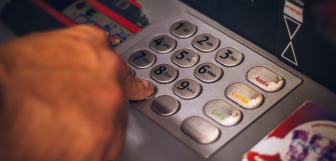How to Open a Business Bank Account in the UK
When you start a new business, it’s vital to get the basics right. You need to register a business name, choose a business structure, and secure funding.
Another important aspect of starting a business is opening a dedicated business bank account. This account is where you’ll do most of your business’s transactions.
Here, we’ll take you through everything you need to know to set up your business bank account in the United Kingdom.
What is a business bank account?
In a lot of ways, a business bank account is like a regular personal account, only in your business’s name. These accounts are usually exclusively available to sole traders, partnerships, companies, clubs, societies, and charities.
You will use your business bank account for all your business’s financial transactions, from paying employees to taking payments for products and services. Business bank accounts also usually have special rates and features which the bank promotes to sell new customers on the accounts.
Who needs to open a business bank account?
Some people, especially sole traders and freelancers, wonder why they need a business bank account at all. Can’t they just use their personal accounts?
It’s generally good practice to open a separate account for your business. It keeps your personal finances separate from your business and helps you look more professional to potential customers and clients.
Some businesses also need to have separate accounts as a matter of law. If you’re setting up a limited company, you’ll need to set up a separate bank account - this is a legal requirement.
The benefits of opening a business bank account in the UK
In general, if you have a business, you should have a business account.
First, sole traders can often mix up their personal and business affairs when using the same account for professional and personal reasons. Some banks even require that personal and business accounts remain separate.
Having a separate bank account could also make filing your taxes easier since your personal and business expenses aren’t confused. Instead of pouring through spreadsheets to find relevant transactions, you can simply export all your data and send it to your accountant.
Plus, having a business account makes you seem a lot more professional to potential clients. Customers and vendors expect to see your business name on bank transactions. If your personal name appears, they may be sceptical or hesitant to trade with you.
Other benefits of a business account include:
- Invoices paid directly into a business account
- Being able to apply for a business credit card
- Building credit history so you can apply for other business finance products
- Features that make payroll and expenses easier
What do I need to set up a business bank account in the UK?
Setting up a business bank account is relatively straightforward as long as you meet the eligibility criteria.
You need to have the following documents when opening the account at a bank in the UK:
- Identification: All named company directors will need some proof of identification, such as a passport, national photo ID, or driver’s license.
- Proof of address: This will show the business’s registered address. You can use a utility bill, recent bank statement, or council tax statement as proof of this.
- Contact details
- House registration number (for limited companies and partnerships)
- Estimated annual turnover
- Documents proving your financial situation, such as your credit and bank history
Researching accounts online
Most banks will provide detailed information about their account offerings online. While you can’t open your account online, there are many resources you can avail yourself of. Be sure to shop around and compare minimum balance requirements, fee structures, and benefits offered by each bank.
Setting up a meeting to open your account
Once you’ve identified the bank for you, you can set up a meeting to open your account. While you can find lots of information online about a bank’s different accounts, most will require an in-person meeting where you will provide the documents listed above.
The bank will also need to meet in person with at least one of your company’s representatives in the UK to sign a bank mandate to open the account. During this meeting, be sure to inform the bank if your business has foreign shareholders and/or directors of the business.
Business bank account monthly fees
Most banks charge monthly fees to use their accounts. Many banks will try to promote their accounts by offering special deals and limited-time offers for the first 12 to 18 months of use.
While these can be good deals, make sure you know what you’ll be paying when the promotion expires. Usually, the more transactions there are for an account, the higher the charges are likely to be. Some banks charge no fees at all, while others may charge you around £20 per quarter.
How long does it take to set up a business bank account in the UK?
It usually takes around three weeks to three months to open a business account in the UK. Make sure you factor this time into your planning. However, some banks may let you create an account on the same day.
Setting up a business bank account in the UK as a non-UK resident
It can be difficult to open a business bank account in the UK as a non-resident. Non-residents are less likely to have the required documents listed above.
However, with rates of immigration in the UK remaining steady or rising, banks are becoming far more flexible and allowing people to create accounts without as many restrictions. Banks like Lloyd’s, Santander, Halifax, and Barclays are well known for helping people set up hassle-free business accounts.
Business banking tips
When using your business account, keep these things in mind:
- Use your business account for all your business transactions: You can use this account to pay your employees, pay invoices, receive electronic payments, and create standing orders. Containing all your business activity to one account will help simplify things when you file your taxes.
- Don’t use your business account for personal use: The whole point of creating a separate account for your business is to keep it separate from anyone’s personal accounts. Keeping your two worlds separate will keep things simpler.
- Be aware of your fees: Your bank may charge you for certain transactions, such as cash, electronic, or check payments, both in and out of your account. These, along with monthly fees and overdraft penalties, can add up. Make sure you know what you’re paying.
- Use customer support: Many banks have customer service teams dedicated to helping small businesses. If you’re struggling to make your account work for you, try talking to your bank to see how they can help.
Helping small businesses grow
When you set up a new business account, the hope is that you will deposit large amounts of money. In order to process all those payments from customers, you need a point of sale system that’s top of the line.
Epos Now has many modern point of sale systems for hospitality and retail businesses that need a dedicated system for taking payments, managing inventory, and integrating with the best accounting apps.
With an Epos Now point of sale system, you can:
- Set up, onboard and train staff in minutes
- Offer in-store, delivery, collection services
- Sell across multiple channels
- See business insights through any device
- Access real-time reporting on staff, customers, sales, margin, and stock
- Use as a standalone device or connect to hundreds of apps, including payment systems, accounting software, and much more
- Get bespoke software for your business
Contact Epos Now to find a great point of sale system for you.




